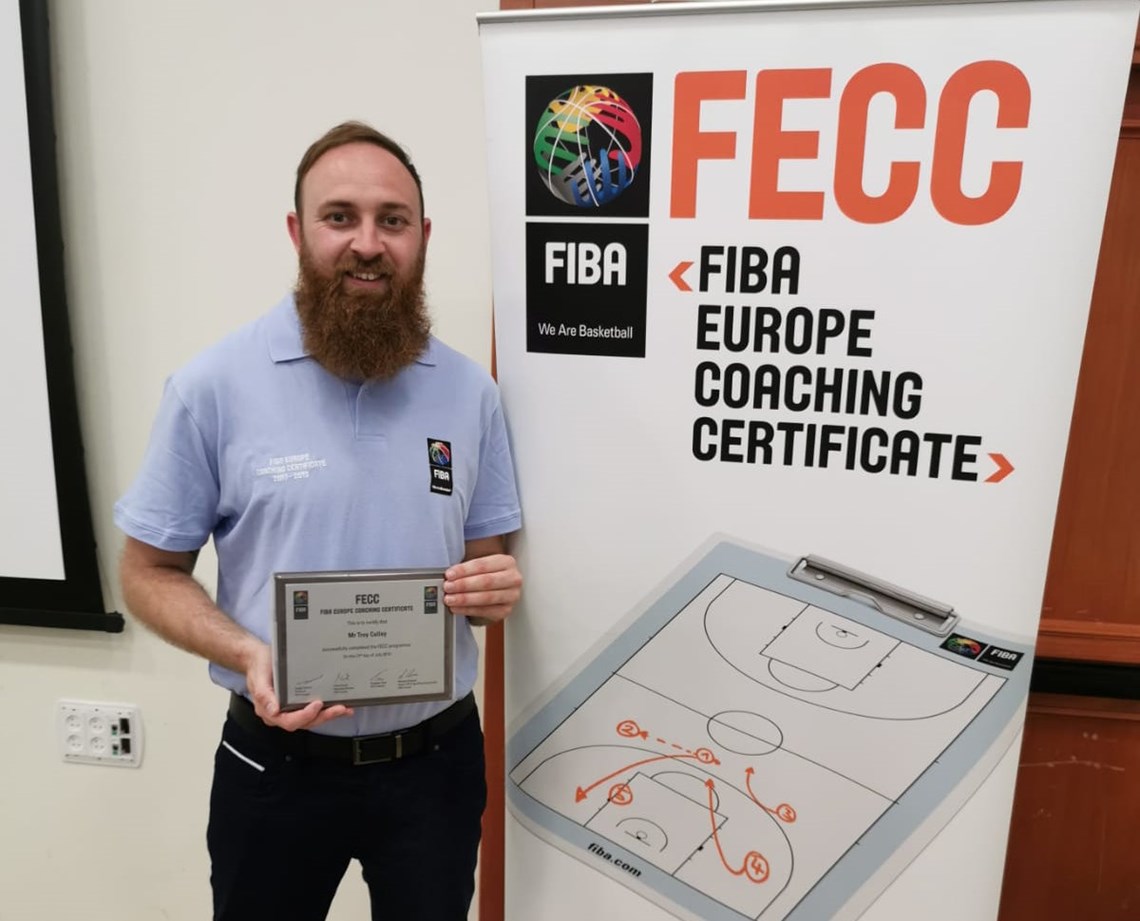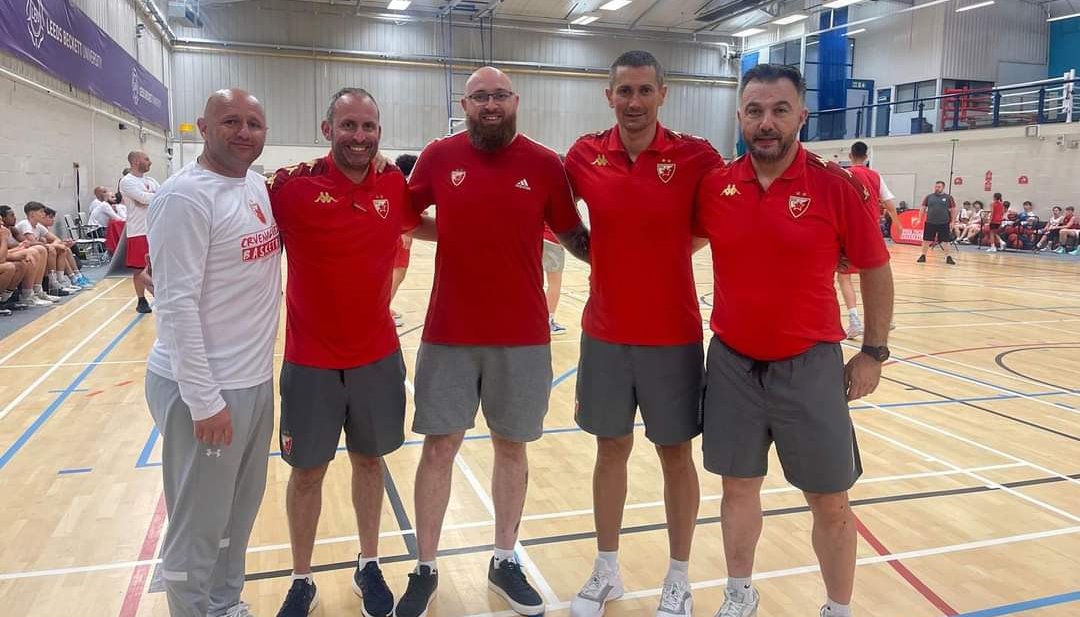
After finishing his maiden season coaching in Germany's Pro A and Regionalliga leagues, we caught up with the 34-year old to discuss how he started his coaching career, his stops along the way, and what advice he'd pass on to other coaches looking to follow in his foot steps.
The opening part covered Culley's introduction to coaching, how he started his journey and his eventual move to the South East and Kent Crusaders, part two discussed Culley's time at Myerscough and his National Teams work, whilst the third instalment documented Culley's move to Germany.
This article is the final segment in the four-part series with the former Myerscough man, with the other three parts linked below.
.
.
.
As someone that has traversed the Talent Pathway, and is now making a full time living as a coach, there’s plenty Culley can pass on to others.
Last month he was also announced as a guest coach for Red Star Basketball Camp’s ‘Elite Week’ this summer, allowing Culley to work with another generation of young players.
It's emotional,” reflects Culley, when discussing the announcement. “Because I think everybody, in all walks of life, gets caught up in thinking, what is next? I want the next thing. I need to do this. So and so is doing this.
“And I think it's very easy when you're chasing something to forget what you achieved to get to the point you're at. It's an exercise I do a lot with the coaches that I support at the moment through BE and UK Coaching. What have you achieved up until this point? Because when you go through that process of actually thinking about what you've achieved, you surprise yourself how far you've come.
“For me, being able to return and to give back, it's something that I think is really important and something that I really value.
“There was a point in time when I wasn't really anyone. I was just a young coach, I was passionate, and people like Jesse (Sazant), Neal (Hopkins), Matt (Newby), Karl (Brown), Steve (Bucknall), all took a chance on me, supported me, gave me opportunities.
“To be able to go back and help other people, I think that's what the coaching fraternity is about.”

For those that know Culley, his sentiment is true. Appreciative of those that helped him, supportive of those that have played for him, he is walking a path that plenty of others would love to follow.
It didn’t happen overnight. It took moves that pushed him from his comfort zone, from Torbay, to Canterbury, to Myerscough and now Germany. But those moves have strengthened his resolve, improved his skills, and broadened his horizons.
And for other coaches looking to better themselves, no matter their end goal, he has plenty to offer.
“Just coach, as much as you can. The best way to improve is to actually be on the floor, working with players, making mistakes, and figuring things out.
“You can read all the books and watch all the videos, but nothing replaces hands-on experience. So whether it’s youth teams, school teams, clubs - whatever level - get as many reps as possible. That’s the same for coaches as it is for players.
“Also, be a sponge. Basketball is constantly evolving, and the best coaches are lifelong learners. I’d tell any young coach to study the game, watch how different teams play, and learn from coaches at all levels.
“And don’t just look at basketball—look at leadership, communication, and even sports psychology, because coaching is way more than just X’s and Os. It can all help.
“Another big one is building relationships. At the end of the day, players don’t care how much you know until they know how much you care. The best coaches connect with their players.
“It’s not just about what you teach; it’s about how you communicate, how you get people to buy in, and how you make them better.”

After starting life in Torbay, in a part of the world that by Culley’s own admission wouldn’t be high on a list of basketball hotbeds, his further advice will ring true for coaches no matter where they’re practicing their trade.
“Be willing to start at the bottom and pay your dues. Early in my career, I took on a lot of different roles because I knew it would help me grow. Sometimes young coaches are in a rush to get a big title, but the truth is, if you focus on getting better, the opportunities will come.
“That approach also helped my coaching identity. What do you stand for? What’s your philosophy? You don’t have to have all the answers right away, but you should start thinking about the type of coach you want to be and what you value most and at the same time, be open to adapting and evolving as you learn more.”
And for a man who’s put in the miles, literally as well as figuratively, for the sport and profession he loves, it’s no surprise that potentially Culley’s most important take-away revolves around networking.
It opened doors for him at all the stops across his coaching journey to date, and will no doubt do the same for him in the future.
“I really can’t stress enough about networking and putting yourself out there,” Culley states.
“Coaching is a relationship-driven profession. If you want opportunities, you’ve got to connect with people, ask questions, and be visible - whether it’s through coaching clinics, social media, or reaching out to other coaches. My move to Germany happened because of the connections I’d built over time, as did other moves I made before that with Myerscough and the Crusaders.
“Stay patient and stay the course. Coaching can be tough. You’ll have bad games, tough losses, difficult players - but it’s all part of the journey.
“The best coaches keep learning, keep improving, and stay resilient. You don’t need to rush - just focus on getting better every day, and the right opportunities will find you.”
.
Main image credit - Dennis Duddek
